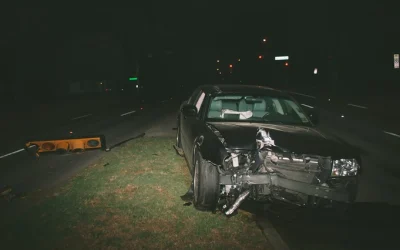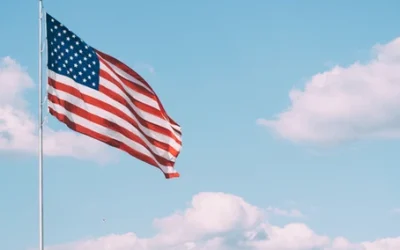Understanding Nevada Law for Prescription Drugs
In Nevada, unlawful possession or sale of prescription drugs is punished just as harshly as possession or sale of street drugs like cocaine, heroin, and ecstasy. Police officers in Clark County, Nevada have significantly increased prescription drug law enforcement efforts in recent years in response to a rise in abuse of prescription medications.
Penalties for Possession of Prescription Drugs in Nevada
The penalties for unlawful possession of prescription drugs in Nevada vary based on how many times you have been convicted of possession of a controlled substance in the past.
FIRST OR SECOND OFFENSE: A first or second conviction of unlawful possession of prescription drugs is a category E felony in Nevada, carrying one to four years in a Nevada State Prison. You may be able to avoid prison and a conviction if you are willing to enter a drug education or rehabilitation program.
THIRD OR SUBSEQUENT OFFENSE: A third or subsequent conviction of unlawful possession of prescription drugs is a category D felony in Nevada, which carries one to four years in a Nevada State Prison, and a potential fine of up to $20,000.
Prescription drugs can be powerful and highly addictive. These are some of the many reasons why unlawful possession of prescription drugs is considered a felony in Nevada.
The following drugs are commonly abused in Las Vegas, Nevada and the surrounding areas. If you are found in possession of any of the following prescription medications without a valid prescription, you could be convicted of a felony and sentenced to time in a Nevada State Prison.
Oxycontin Vicodin Adderall Xanax Ambien Lunesta Ativan
Valium Fentanyl Methadone Codeine Amytal Roxanal Percodan
Percocet Sublimaze Oxycodone Lortab Lorcet Dilaudid Demerol
Dexedrine Concerta Ritalin Opana Dolophine Duramorph Librium
This list is not exclusive. If you are found in possession of a prescription drug and you do not have a current, valid prescription for it, you can be charged with a crime. The penalties are more severe when there are circumstances suggesting that you intended to sell the prescription drugs. You can be charged with unlawful sale of prescription drugs even if you have a valid prescription for the drugs.
If you have been charged with possession of a controlled substance or possession of a controlled substance for purpose of sale in Nevada, hire an experienced prescription drug crimes lawyer right away.
NRS – Prescription Drugs
Nevada Revised Statutes § 453.336 makes it a crime to possess a controlled substance in the state of Nevada. This includes prescription drugs unless you have a current, valid doctor’s prescription. Penalties for possession of prescription drugs vary based on the amount found in your possession and whether or not you have been convicted of possession of a controlled substance before.
Taking Another’s Prescription is Against the Law in Nevada
Many people mistakenly believe that they can share prescription drugs with friends and family members. This is not the case. You are not allowed to give away your prescription drugs to anyone else under any circumstances. It is also a crime to “borrow” prescription drugs from someone else. Unless you have a current, valid prescription from a licensed physician, do not keep prescription drugs on your person, in your home, or in any other location over which you have control.
Another common misconception is that you must have the prescription drugs on your person in order to be charged with possession of a controlled substance. Under Nevada law, “possession” is broadly defined. It extends to any location over which you exercise control, including your car, home, office, or storage shed.
Nevada law prohibits three types of unlawful possession of prescription drugs: actual possession, constructive possession, and joint possession.
ACTUAL POSSESSION OF PRESCRIPTION DRUGS: Actual possession of prescription drugs occurs when someone physically keeps prescription drugs for which they do not have a valid prescription on their person. Examples of actual possession of prescription drugs include hiding a bottle of oxycontin for which you do not have a prescription in your back pocket or holding three xanax in your hand that were given to you by a friend
CONSTRUCTIVE POSSESSION OF PRESCRIPTION DRUGS: Constructive possession of prescription drugs occurs when someone stores prescription drugs for which they do not have a valid prescription in a location over which he or she has control. Examples of constructive possession of prescription drugs include hiding a bottle of codeine cough syrup under the passenger seat in your vehicle or storing several bottles of methadone in your garage.
JOINT POSSESSION OF PRESCRIPTION DRUGS: Joint possession of prescription drugs occurs when two or more people share control or ownership over the same prescription drugs. An example of joint possession of prescription drugs is two college roommates who store several bottles of ritalin and adderall for which they do not have prescriptions in their dorm room. Both roommates can be prosecuted for unlawful possession of prescription drugs.
Unlawful Possession of Prescription Drugs for Purpose of Sale
Nevada Revised Statutes § 453.338 makes it a crime to possess prescription drugs for purpose of sale in Nevada. Only doctors and pharmacists are authorized in the state of Nevada to sell and distribute prescription medications. They are subject to a complex set of state and federal rules and regulations, including licensure procedures.
Ordinary people cannot sell prescription medication to others under any circumstances.
Many people think that they have a right to sell their extra prescription medication to family and friends if they are not using it. This is not the case. Doing so is a crime. If you have leftover prescription medication, safely dispose of it.
The offense of unlawful possession of prescription drugs for purpose of sale in Nevada is also referred to as:
Possession of a controlled substance with intent to sell
Possession of narcotics for purpose of sale
Possession for sale of prescription drugs
Under Nevada law, you may be punished for possession of a controlled substance for purpose of sale even if you have not sold any prescription drugs. People are commonly accused of possession of a controlled substance for purpose of sale based on circumstantial evidence suggestive of drug dealing, including the amount of prescription medication in their possession at the time of arrest.
In order to convict someone of unlawful possession of prescription drugs for purpose of sale in Las Vegas, Clark County prosecutors must prove two elements beyond a reasonable doubt:
You were in possession of prescription drugs, and you had the intent to sell the prescription drugs.
To prove the first element, the prosecution will argue that you had actual, constructive, or joint possession of prescription drugs as discussed above. It is important to understand that you can be prosecuted for this offense even if you do have a valid prescription for the drugs. So long as there is evidence to suggest you intended to sell them, you can be charged with unlawful possession of prescription drugs for purpose of sale.
To prove the second element, the prosecution will argue that the circumstances surrounding your arrest or other evidence suggests that you had intent to sell the prescription drugs. Examples of this type of evidence include:
Quantities of prescription drugs stored separately in small bags, bottles, or containers;
Possession of a firearm or other weapon;
Possession of a large quantity of cash, especially small bills;
Arrest in a high-crime area known for drug transactions; and
Being arrested with a large quantity of prescription drugs while not high or intoxicated.
Penalties for Unlawful Possession of Prescription Drugs for Purpose of Sale in Nevada
The penalties for unlawful possession of a controlled substance for purpose of sale in Nevada depend on how many times you have been convicted of the offense before.
FIRST OFFENSE: The first conviction of drug possession for sale is a category D felony in Nevada. The court has discretion to impose probation. Otherwise, the judge may sentence you to one to four years in a Nevada State Prison and a possible fine of up to $5,000.
SECOND OFFENSE: The second conviction of drug possession for sale is a category C felony in Nevada. You can be sentenced to one to five years in a Nevada State Prison and a possible fine of up to $10,000
THIRD OR SUBSEQUENT OFFENSE: The third or a subsequent conviction of drug possession for sale is a category C felony in Nevada. You can be sentenced to three to 15 years in a Nevada State Prison and a possible fine of up to $20,000.
It is important to understand that if you are charged in federal court with drug possession with intent to sell or distribute, you could face a harsher criminal sentence. If you have been charged with federal drug crimes, contact a Las Vegas federal criminal defense attorney right away.
Defenses to Possession of Prescription Drugs in Nevada
If you have been charged with unlawful possession of prescription drugs in Clark County, Nevada or another prescription drug-related offense, you should hire an experienced Las Vegas criminal defense lawyer. A lawyer can help argue against a charge of unlawful possession of prescription medication.
Depending on the facts of your case, the following defenses to unlawful possession of prescription drugs may be available to you:
LACK OF KNOWLEDGE: A critical element of a conviction for possession of any controlled substance in Nevada is knowledge. The prosecutor must prove beyond a reasonable doubt that you had knowledge that the prescription drugs were in your possession. If you did not know that there was a bottle of Ambien for which you did not have a valid prescription in the glove compartment of your car, for example, you cannot be convicted of unlawful possession of a controlled substance in Nevada.
LACK OF INTENT: If you have been charged with unlawful possession of prescription drugs for purpose of sale in Nevada, prosecutors must prove beyond a reasonable doubt that you intended to sell the prescription drugs. A criminal defense attorney can argue that the circumstances surrounding your arrest do not show an intent to sell or distribute prescription drugs.
CONSTITUTIONAL VIOLATIONS: In some cases, it is possible to exclude critical evidence from your unlawful prescription drug possession trial because it was gathered in violation of your constitutional rights. A criminal defense lawyer can tell you whether your Fourth Amendment, Fifth Amendment, or Sixth Amendment rights were violated and how this might impact your cocaine possession case.
EVIDENTIARY PROBLEMS: Sometimes, it is possible to exclude key evidence from your prescription drug possession trial on the basis that it has been tampered with or mishandled. An experienced prescription drug crimes defense lawyer will review the investigation conducted by police to see if this type of defense might apply in your case.
Other Prescription Drug Offenses in Nevada
There are several other prescription drug-related offenses under Nevada law. Depending on the amount of prescription drugs found in your possession at the time of your arrest, you may be charged with violating Nevada’s harsh drug trafficking laws.
If you have been charged with any of the following offenses, contact a Las Vegas drug crimes defense lawyer right away:
Possession of drug paraphernalia
Sale of prescription drugs
Trafficking of prescription drugs
Driving under the influence of drugs (DUI-D)
Transporting prescription drugs




